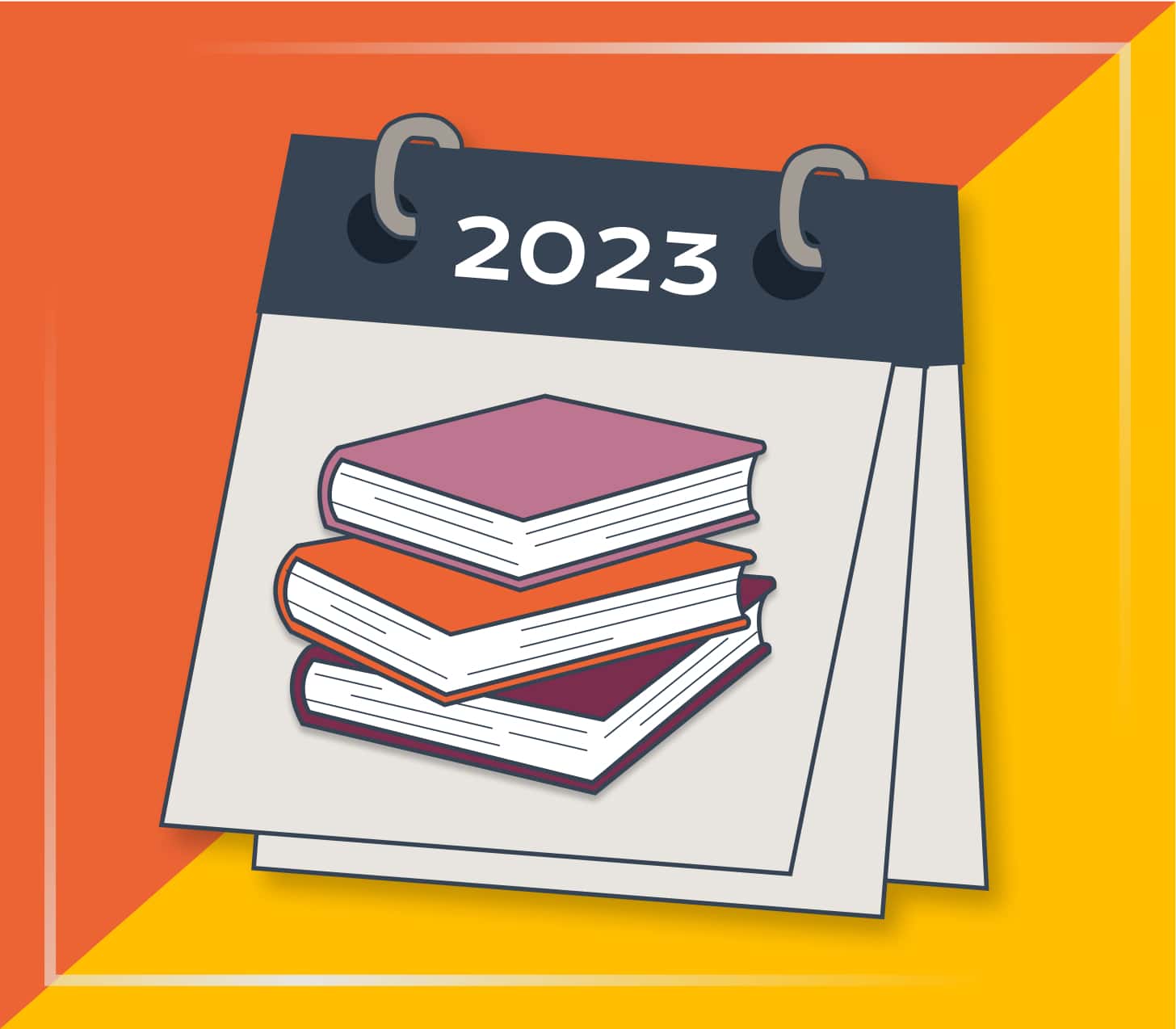
In 2023, the Simple Thread team continued to expand, paralleled by the growth of our collective reading list. This year, we’ve gathered a selection of standout books, personally chosen by various team members. As the holiday season approaches, we’re excited to share these literary gems with all of you, hoping to spread the joy of reading and discovery.
Games: Agency As Art by C. Thi Nguyen
Team Member: Joseph Glass
Genre: Philosophy, aesthetics, game studies
Looking for a lengthy academic analysis of the philosophy and aesthetics of Games? Look no further! Nguyen argues that Games are the artform of agency, of making choices, of having powers and goals. Games tell you what to do, but they also tell you what to *care about*. They offer instant feedback and rapid improvement, honing our performance into peaks unparalleled in the real world. Games let us pick up temporary values and arbitrary limits, strive for them for the joy of the struggle, and (usually) lay them back down. They can even replace what we used to care about, and make us unreasonably invested in acquiring monopoly money.
And if you’re not in the mood to read a dense philosophical treatise for fun and want something a little more snappy, you should *definitely* check out this author interview discussing these fascinating topics: A Life-changing Philosophy of Games.
Money: The True Story of a Made-Up Thing by Jacob Goldstein
Team Member: Justin Etheredge
Genre: Economics
“Money” is a fascinating exploration of money’s evolution from ancient times to the digital age. Goldstein, co-host of NPR’s “Planet Money,” uncovers how different societies invented and adapted various forms of currency, from cattle and shells to coins and paper.
The book is full of fascinating anecdotes about how modern currency came into existence. In one example Goldstein describes how the Chinese, during the Tang Dynasty, were the first to use paper money. This innovation was born out of necessity, as heavy metal coins were impractical for large transactions. Individuals set up businesses to store the physical currency, issuing receipts, which over time were traded and eventually became the currency itself.
The book further delves into the development of banks, stock exchanges, and modern monetary policies, explaining complex ideas like inflation and interest rates in an accessible way. Goldstein emphasizes money as a constantly evolving, man-made construct, integral to our social and economic systems.
Rough Sleepers: Dr. Jim O’Connell’s Urgent Mission to Bring Healing to Homeless People by Tracy Kidder
Team Member: Molly Brannan
Genre: Biographies and Memoirs
In “Rough Sleepers” pulitzer Prize-winning journalist Tracy Kidder tells the story of Boston physician Jim O’Connell and the homeless people he treats. It is a sad, funny, uplifting work of nonfiction that paints both the doctor and his patients with a kind, humanizing brush. It has forced me to examine my own biases, and I have found myself thinking about it every time I interact with a “rough sleeper” in my own city.
The Power of Fun by Catherine Price
Team Member: Katie Marshall
Genre: Nonfiction, Self Help, Psychology, Personal Development, and Health
This book is a delight. Price defines fun as the intersection of playfulness, connection, and flow, and guides us through a fun history audit to identify our “fun factors.”
A clip from the book sums it up best: “Once you have used your fun history to identify some of your fun magnets, the next step is to figure out the general characteristics that create their magnetic pull. These are your personal “fun factors,” and once you’ve identified yours, you will have given yourself a powerful tool that you can use to find and create new experiences that are likely to generate True Fun.”
This approach demystifies fun, taking it out of the realm of moments that we stumble upon, and into the realm of a protocol. It’s a revolutionary idea – that once we understand our personal fun factors, and with the right intention and cultivation, we can bring more fun into our lives. And who doesn’t want that?
Friends, Lovers, and the Big Terrible Thing: A Memoir by Matthew Perry
Team Member: Tracy Baumann
Genre: Biography, Memoir, Nonfiction, and Mental Health
I wasn’t a big “Friends” fan, just watched it casually, but I picked up Matthew Perry’s book after a recommendation. I was immediately impressed with the writing, and to learn he did not use a ghostwriter. The book’s got this dark, witty vibe, just like Chandler. But what really got me was how deep it goes into his addiction and mental health struggles. It’s even more touching now, with his recent passing.
The book isn’t all heavy, though. It’s got its hopeful moments and some laughs, showing how important our relationships are. It’s a mix of inspiring, sad, and funny – and way more engaging than I expected. Reading about Perry’s life, with all its ups and downs, was a real eye-opener. Definitely a good read, not just for fans, but for anyone.
Cobalt Red: How the Blood of the Congo Powers Our Lives by Siddharth Kara
Team Member: Justin Etheredge
Genre: Business and Money
“Cobalt Red” is a deeply disturbing look into the dark underbelly of the cobalt industry in the Democratic Republic of Congo (DRC). Cobalt is a crucial element in the manufacturing of batteries for electric vehicles and various electronic devices, making it a critical resource in the modern tech-driven world.
The book reveals the harsh realities of cobalt mining in the DRC, where the quest for increasing amounts of cobalt lead to egregious human rights violations, including child labor, exploitation of workers, and dire working conditions. Kara provides a vivid account of the lives of those who labor in the mines, drawing attention to the human cost behind the booming global demand for cobalt.
Kara also delves into the broader implications of cobalt mining, including its environmental impact and the geopolitical power struggles surrounding it. He describes in detail the complex supply chains that link Western companies to the plight of Congolese miners, including the mechanisms in place that enable Western companies to claim that their cobalt is ethically mined.
“Cobalt Red” is a call to action for greater transparency and accountability in global supply chains and a plea for the ethical sourcing of vital resources. This book is a powerful reminder of the often unseen human and environmental costs of the technologies that power our lives.
* Side note: Cobalt-free battery chemistries are being developed by a number of companies currently, and are being used in some electric vehicles. However these alternatives still don’t have the energy density that traditional lithium-ion batteries have, and so aren’t currently used in smartphones and other small devices, leading to cobalt demand continuing to increase year over year.
Braiding Sweetgrass: Indigenous Wisdom, Scientific Knowledge, and the Teachings of Plants, by Robin Wall Kimmerer
Team Member: Robert Beatty
Genre: Nonfiction, Science, Nature, Memoir, and Spirituality
I can’t remember the last time I read a book that stuck itself so deeply into my brain, refusing to leave. It may have been The Overstory, which also happens to be about plants. This may not be a coincidence.
A professor at the State University of New York – College of Environmental Science & Forestry and renowned botanist, Kimmerer explains her outlook on the world through a unique lens of academia intertwined with knowledge passed down culturally as a citizen of the Potawatomi nation. Kimmerer uses her way with words* to steer you away from the easy path of having a doom and gloom outlook on climate to one that leaves you with a sense of duty and hope for the future.
She uses the tools that she knows – plants and stories – to describe a world full of respect, gratitude, and joy that I hope we all can aspire to. By thinking of ourselves as members of the society of earth rather than the conquerors of it, we can cultivate relationships that are beneficial to everyone – a group that Kimmerer explains includes plants themselves.
* I listened to the audiobook of this which is read by Kimmerer herself and I can only describe it as one of the most comforting experiences of my life.
Loved the article? Hated it? Didn’t even read it?
We’d love to hear from you.


